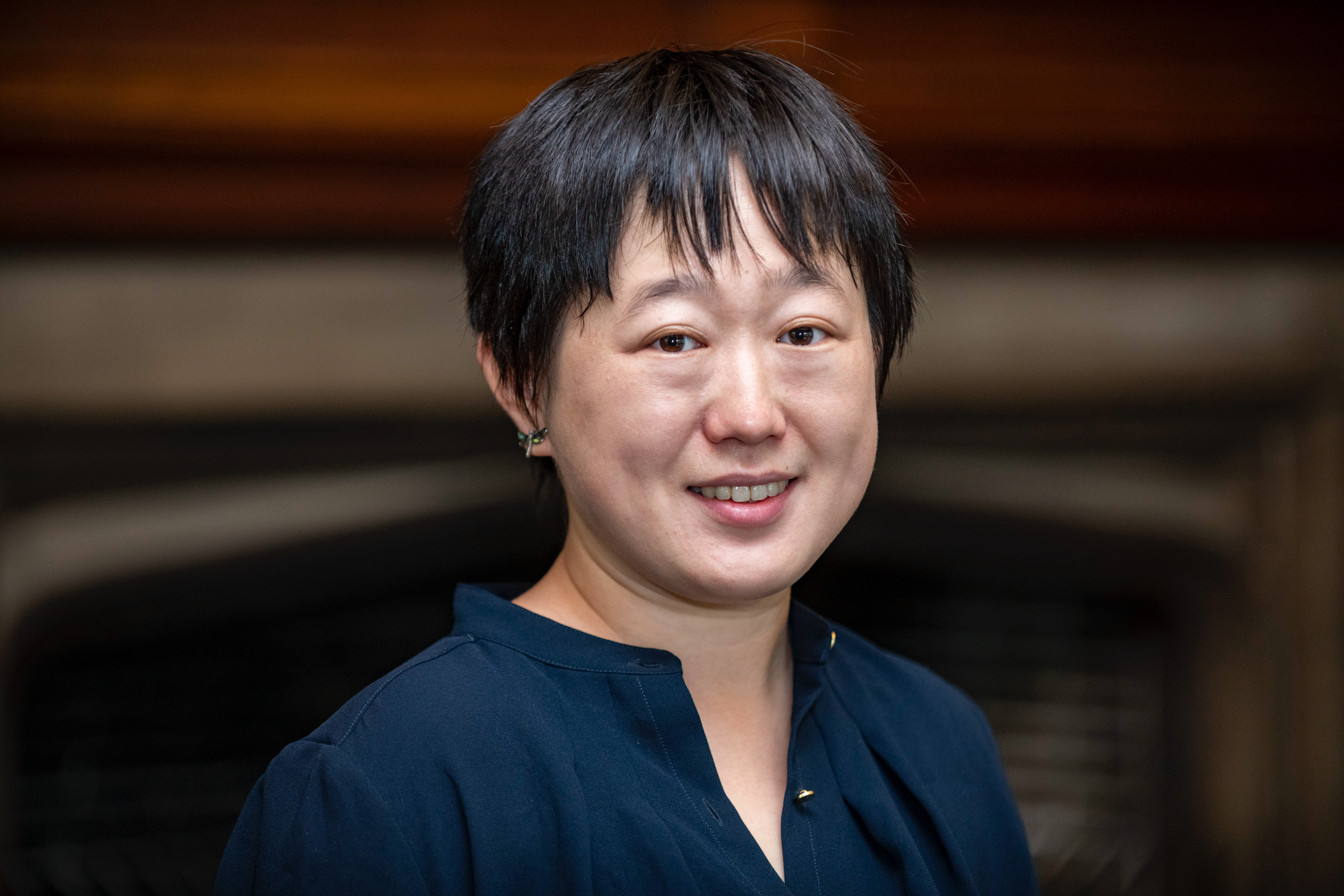
Project Abstract: Mapping Neighborhoods in Japan’s Empire: A Digital Humanities Project on Infrastructure’s Socio-Political Influences
During Japan’s colonial rule in Manchukuo from 1932 to 1945, the government erected large-scale physical infrastructure, which led to the breakdown of former communities and generated unprecedented tensions among the diverse ethnic groups in Manchuria. This project uses methods of digital humanities to explore how imperial infrastructure reconfigured ethnic relations. Mapping Neighborhoods extrapolates data from two sets of documents, telephone directories and merchants-industrialists’ directories that Japanese institutions in various cities in Manchuria published regularly. Using ArcGIS/QGIS, this is the first project that will revive the spatial dwellings of different ethnic groups on historical maps down to the street level. My mapping will shed light on how each ethnic group related to each other and to key infrastructure facilities differently. This project not only contributes to the current studies of Japan’s empire by going beyond the limitations embedded within official archives and written records, yielding a more diverse and accurate view of how inter-ethnic relations played out in space and time, but also converses with studies of infrastructure to show how the dual force of imperialism and capitalism manufactured differences within Japan’s empire in Manchukuo and how empires reproduced social and political hierarchy through manipulating spatial relations.
Biography:
Yuting Dong is an assistant professor in the Department of History at University of Chicago. She works on infrastructure, history of technology, labor and expertise in Japan and East Asia at large. Her current book manuscript shows how Japanese colonial engineers and officials negotiated and engaged with Chinese laborers, brokers, and craftsmen in the building of the urban landscape in Northeast China. Her work is published in Technology and culture, Modern Asian studies, and international journal of Asian Studies.
Yuting's research interests primarily lie incolonialism, history of labor and expertise, and environmental history. She graduated from Harvard University with a Ph.D. in May 2021 and was an Academy Scholar at Harvard Academy for International and Area Studies before joining the University of Chicago's History Department in July 2022.
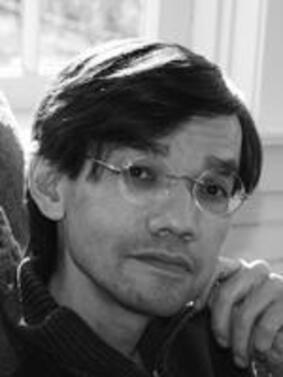
Biography:
Professor Mauricio Tenorio is a Gustavus F. and Ann M. Swift Distinguished Service Professor of History, the University of Chicago and the College and Affiliated Professor, Center for Economic Research and Teaching (CIDE) in Mexico City. He has been a scholar for over two decades, including thirteen years at the University of Chicago. Prof. Tenorio received his PhD from Stanford University in 1992.
Book Title: Walking a City's History
Prof. Mauricio Tenorio is a historian of cities and has written several books on the history of such cities as Barcelona, Berlin, and Mexico City, mostly covering the late 19th and early 20th centuries. Based on his previous work, he recently completed Walking a City’s History: Mexico City 1500s-2020s, an ambitious collection of vistas to the history of the Mexican megalopolis. It is, of course, an academic book, but also a book that seek to address a larger readership.
As a historian, and an urban stroller, walking cities has granted Prof. Tenorio a vivid sense of how “to keep going,” which is, after all, what history and life are about. Over the years, he has transmuted, perhaps unduly, urban strolls into history books and essays --as if his profession underwrote the strolling that reveals to him the ideas and the state of mind that, in turn, allow his profession. Thus, Walking a City’s History merges history telling and imaginary and actual walks over Mexico City´s past, from 16th-century Mexico-Tenochtitlan to the present megalopolis. This book, however, seeks to be neither a comprehensive account of such a long and intricate history nor a scholarly debunking of vast historiographies. Simply put, walking and watching guide the book. Whatever else, he tries to document, to imagine, building on his years of teaching and researching the histories of cities with his readerly mind and his street weary feet. The book´s chapters highlight specific moments and vistas extracted from the city´s long life.
They also present different ways of telling the stories, at times suggesting imaginary walks; other times narrating factual walks, and at time simply engaging in personal ruminations charged with the weight of the past and the present.
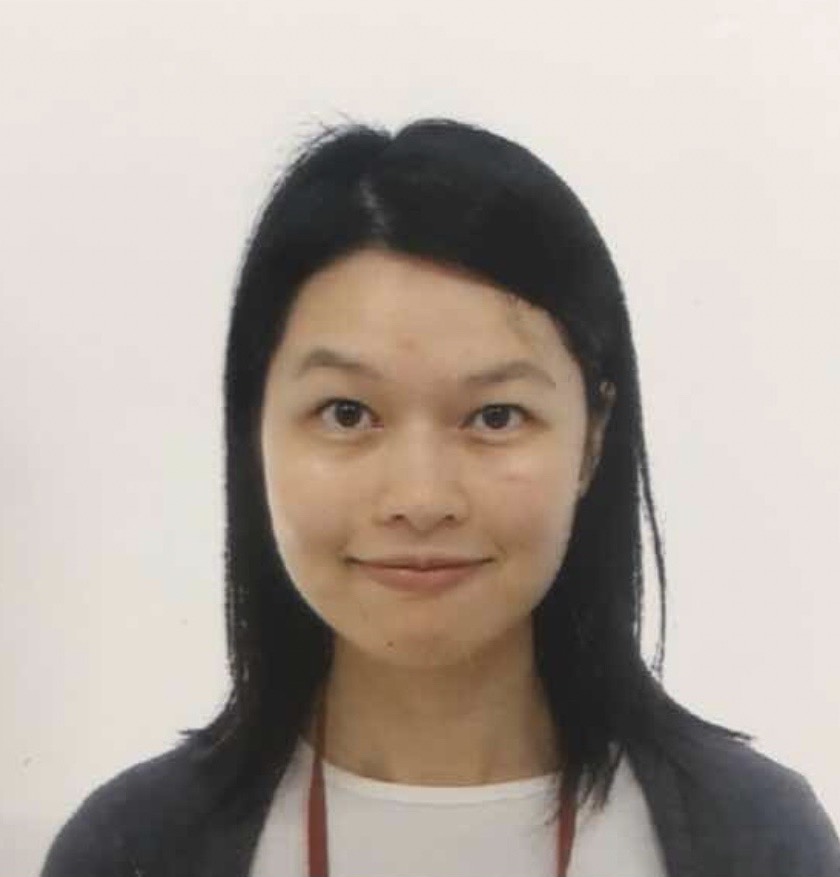
Biography:
Xiangning Li is a Ph.D. student at the University of Chicago (History, 2020). Her research interests include gender history, the history of law and society, and the global history of cold war.
Project Title: "Strange Bedfellows”: Reproductive Labor, Family Strategies, and Marriage Disputes during and after China's Great Leap Forward, 1958-1965
As recent research has shown, China was home to a large market in sexual, reproductive, and domestic labor. This involved outright trafficking in women and children who were abducted from their homes, families selling their female members, and even women selling themselves into marriage or servitude. While it is commonly assumed that this trade ended after 1949 when Mao's government attempted to limit population mobility and modernize the family system, this project reveals that such efforts were largely futile. This project studies families’ survival strategies by trading their female members’ sexual, reproductive, and domestic labor during and immediately after China’s Great Leap Forward. Their survival strategies went hand in hand with the state’s judicial and administrative intervention in such illicit practices. This particular way of responding to famine permits us to explore law, morals, gendered division of labor, post-famine politics, and the state’s frontier strategies in the Mao era.

Biography:
Kathleen Belew is an Assistant Professor of History at the University of Chicago, where she specializes in the recent history of the United States. Her first book, Bring the War Home: The White Power Movement and Paramilitary America (Harvard, 2018), documented the white power movement from the late 1970s to the Oklahoma City bombing in 1995. Belew’s research has been featured on Fresh Air, Weekend Edition, and CBS News, and her book has provided the backbone of major reporting projects in The New York Times, PBS Frontline, and more. She has testified before Congress, to intelligence agencies, and to tech companies about the threat of white power violence.
Monograph Enhancement: A Field Guide to White Supremacy (University of California Press, forthcoming Fall 2021)
Belew's book, A Field Guide to White Supremacy (University of California Press, forthcoming Fall 2021), illuminates the longand complex career of white supremacist and patriarchal violence in the United States, ranging across time and across impacted groups in order to provide a working volume for those who wish to recognize, understand, name, and oppose it. We focus here not only on the most catastrophic incidents of white supremacist domestic terrorism—like the 1995 bombing of the Oklahoma City federal building and more recent mass shootings at stores and places of worship—but also on the manifold ways that overt and covert white supremacy, supported by often-violent patriarchy and gender norms, have shaped American law, life, and policy.

Biography:
Samuel Fury Childs Daly joined the University of Chicago in January 2024 as an Associate Professor of History and a historian specializing in twentieth-century Africa. His research integrates legal, military, and social history to examine the continent's post-independence trajectory. His recent book, A History of the Republic of Biafra: Law, Crime, and the Nigerian Civil War (Cambridge University Press, 2020), explores the relationship between the crisis conditions of the Nigerian Civil War and the emergence of crime as a defining feature of Nigeria’s postwar landscape.
His monograph enhancement project, “Soldier’s Paradise: Militarism in Africa After Empire”, has been accepted for publication by Duke University Press.
Monograph Enhancement Project:
Daly's “Soldier’s Paradise: Militarism in Africa After Empire” project is a transnational history of military rule in the former British Empire in Africa. Using legal records and the fragile, scattered archives of several military dictatorships, it describes the peculiar visions that soldiers had for their countries in the years after independence – a time marked by dozens of coups, putsches, and military “revolutions.” Long submerged by more hopeful ideological currents, militarism is now rising back to the surface of African politics. “Soldier’s Paradise” describes where it came from, and why it has lasted so long.
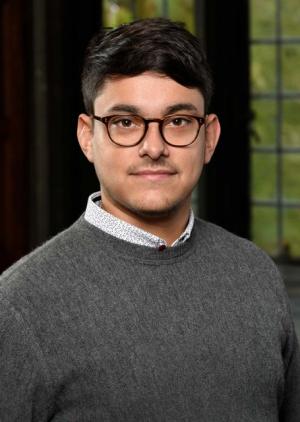
Rohan Chatterjee is a PhD Candidate in History who studies Environmental and Latin American history, particularly land tenancy, land use and property rights. His research interests include twentieth-century Latin America, Peru; agrarian and Indigenous histories; and Anthropocene and environmental history. His dissertation project has also been generously funded by the Fulbright-Hays DDRA Program, Center for Advanced Studies, Mellon Foundation, and the Tinker Foundation.
Dissertation: When A World Moves On: Land, Life and Struggle in the Peruvian Andes
My dissertation, When A World Moves On: Land, Life and Struggle in the Peruvian Andes, traces the history of peasant agriculture over the twentieth century. Peasant agriculture is typically viewed as a marginal activity, an anachronistic holdover from an agrarian past doomed to disappear. And yet, last century, in Peru as elsewhere, peasant agriculture grew like never before. In fact, there are more peasants alive today than at any time prior and they are producing at a hitherto unforeseen scale. In a longue durée study of a single valley, I document how a century of demographic growth led to widespread land pressure, fragmentation of tenancy patterns, unprecedented intensification of agricultural production and a historic reordering of agrarian ecologies. Although chronically absent from scholarly discussions, I show how peasants contributed to the profound social and ecological transformations unfolding across the planet as well as how their experiences help reframe those changes as more than just localized to a few regions (particularly the Global North) or certain activities (like fossil fuel use and industrialization).

2023-24 Abstract:
Gendering the Archive? The Power and Authority of the Abbesses of Quedlinburg, 1125–1511
This project proposes to use the rich source material for the abbesses of Quedlinburg in Germany to address the vexed question of the gendered dimensions of power and authority. Quedlinburg was one of a small number of communities of religious women in the Holy Roman Empire that was, at least nominally, independent of all authority except that of the emperors. In other words, the abbesses were the rulers of the community’s territorial possessions, including the town of Quedlinburg itself. While a great deal of research has been done on the abbesses in the first two centuries of Quedlinburg’s existence (936-1125), in part because most of the source material is available in modern editions, the subsequent four centuries have received little scholarly treatment. As a result, the hundreds of surviving documents from this period that show how the abbesses interacted with both the people under their authority and their neighbors remain a largely untouched source base for the connection between gender and power. The central question driving the project is this: can archival evidence reveal how (or if) the abbesses’ exercise of their authority differed from that of their (male) contemporaries who were dukes, counts, bishops and abbots?
Biography:
Jonathan Lyon's research and teaching focus on the political and social history of Germany, Austria, and the Holy Roman Empire in the medieval period, particularly the eleventh through fifteenth centuries. He has held fellowships from the Alexander von Humboldt Foundation, the Austrian Science Fund, the German Academic Exchange Service (DAAD), the J. William Fulbright Program, and the Dolores Zohrab Liebmann Foundation. His first book, Princely Brothers and Sisters: The Sibling Bond in German Politics, 1100–1250 (Cornell University Press, 2013), won the 2017 John Nicholas Brown Prize for the best first book from the Medieval Academy of America. His recently completed book, Corruption, Protection and Justice in Medieval Europe: A Thousand-Year History(Cambridge University Press, 2023), argues that corrupt practices of protection and justice were a persistent problem at the local level in Europe throughout the period from 750 to 1800. He has also published a volume of translated Latin sources entitled Noble Society: Five Lives from Twelfth-Century Germany (Manchester University Press, 2017). He teaches courses on topics relating to medieval Central Europe and the Holy Roman Empire, premodern political cultures, and European gender history.

The unequal treaties signed between China and the Western powers after the Opium War established extraterritoriality, a legal regime which granted Westerners who committed a crime in China the privilege of being tried under the law of his or her homeland. Existing scholarship on extraterritoriality has focused solely on the de jure level of this institution and its impact on the foreign community per se. Motivated by this top-down interest, scholars exclusively chose to study well-established coastal treaty ports with strong foreign presence such as Shanghai. The result is often a teleological narrative of how Western powers imposed an alien colonial institution on China. In contrast, my project turns to Sichuan, Qing China’s internal frontier, and studies extraterritoriality from a bottom-up local perspective. Using grassroots legal records, I seek to highlight the de facto practice of exterritoriality by examining local society’s responses to Westerners’ extraterritorial legal privileges. On this new ground, I shall reveal that, at the grassroots level, extraterritoriality was as much a process of negotiation as a matter of stipulated legal codes. It is a negotiation in a sense that both Chinese and Westerners participated in the making and remaking of a hybrid judicial order.
Biography:
Yuan Tian is a PhD candidate in the department of history. She obtained her BA from the University of Hong Kong and MA from Stanford University. Her research concerns grassroots-level Sino-Western interactions in the realms of law, religion, and commerce in late nineteenth and early twentieth century China. She is currently writing a dissertation about the impact of Westerners’ legal extraterritorial privileges on local society in Qing China’s southwest frontier. The project seeks to highlight the considerable repercussions of extraterritoriality on the lives of grassroots Chinese who lived outside major coastal ports. Her research has been supported by grants from the American Council of Learned Societies, the Association of Asian Studies, the Nicholson Center for British Studies, and the Center for East Asian Studies.
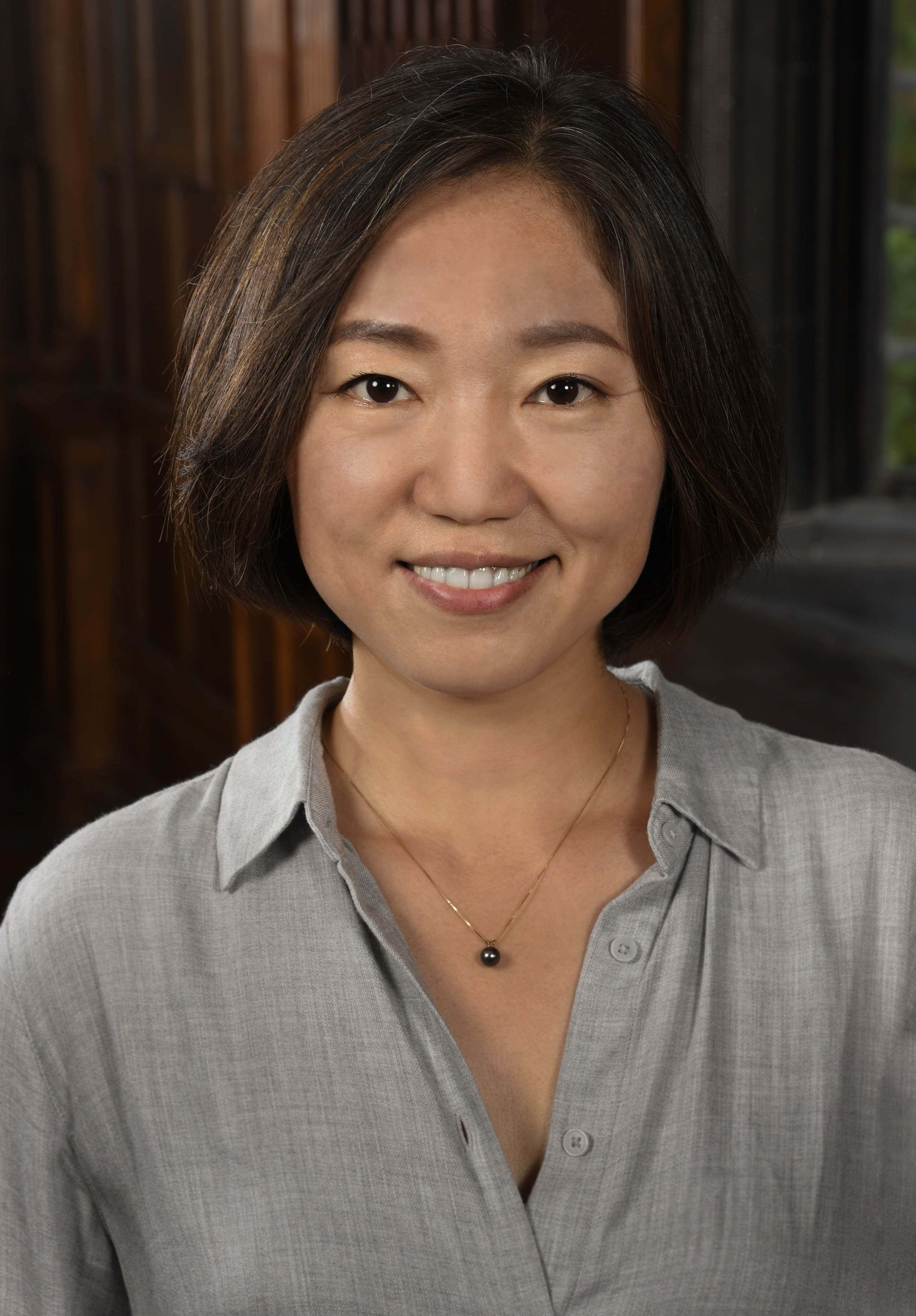
Socialist China (1949-1978) was known as a “bicycle kingdom.” In fact, human-powered transportation technologies, including bicycles, tricycles, and wheelbarrows, were widely used in both state-led infrastructural projects and household productions. In the countryside, the intense reshaping of landscapes to enhance agricultural production relied heavily on wheelbarrows. In the cities, it was the bicycle that made it possible for the massive labor force to commute from every corner of the city to centralized work units on a daily base. A history of the bicycle and other man-powered transportation in Socialist China thus provides a unique opportunity to combine top-down institutional history and bottom-up social history. This project asks how the state planned the production and distribution of these essential items. It also tries to find out how the daily use of these technologies shape the spatial and social relationships among communities. Eventually, this project intends to shed new light on how the dynamic of centralization and decentralization, the paradox between the hegemonic political life and the anarchist social life, manifested on the use of everyday technology such as the bicycle.
Biography:
Yujie Li is a PhD student in History Department at the University of Chicago whose work focuses on the twentieth-century China. Her research interests include history of material culture, history of technology, and history of work and life under Socialism. Yujie completed her Master in Social Sciences in the University of Chicago and her Master in Arts Administration in Columbia University. Before her study in the United States, Yujie worked in arts and media in Beijing.

Biography:
Claire Jones is a PhD candidate in the Department of History. Her research sits at the intersection of early modern British, Portuguese, and Spanish history, and is interested in Atlantic trade, merchant networks and business practices, migration and imperial borders, political economy, and international law.
Project Title: Inter-Imperial Trade and the Formation of an Anglo-Iberian Atlantic, 1660-1720
Abstract:
My dissertation examines early modern British commercial encroachment on Spain and Portugal’s Atlantic empires. Between 1660 and 1720, a variety of actors—merchants, artisans, consuls, diplomats, and officials—became increasingly preoccupied with the negotiation, implementation, and maintenance (or subversion) of legal privileges that allowed British merchants to practice a kind of informal empire in the Atlantic world and limited the ability of the Spanish and Portuguese Crowns to manage their imperial economies. As successive generations of British traders abroad called upon their home government for protection in their interactions with foreign authorities, securing more and better formal rights to trade in the Portuguese and particularly in the Spanish empire became—in addition to a major political objective—a key issue in Britain’s public politics in the early eighteenth century. In contrast to studies that center illicit or intra-imperial trade regimes, I argue that legal inter-imperial trade is crucial to understanding the political and commercial dynamics of the early modern Atlantic world. In particular, it allowed for the formation of an entangled Anglo-Iberian Atlantic in which British merchants and policymakers depended on their ability to formally extract trans-imperial access from their Spanish and Portuguese counterparts.